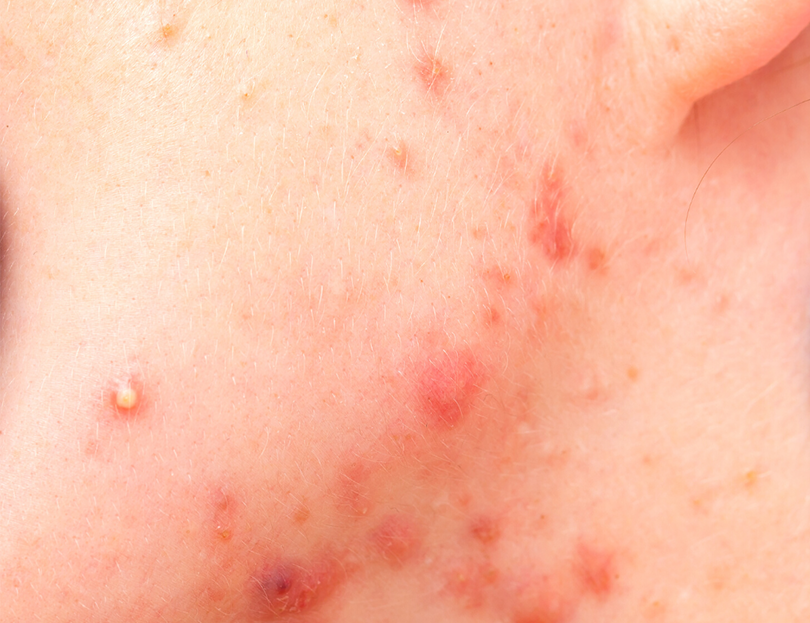Hormones can particularly affect the skin during adolescence, pregnancy, and menopause.
In women, an increase in testosterone (male hormone) can be observed about 1 week before their menstrual periods, leading to hormonal acne.
Androgens/testosterone increase sebum (oil) production, which can clog pores and trigger acne formation.
Polycystic ovary syndrome (PCOS) is characterized by elevated androgen levels along with menstrual irregularities, oily skin, acne, hirsutism (excessive hair growth), and hair loss. Diagnosis requires hormone level tests and ultrasound examination.
Hormonal acne typically occurs on the lower face, neck, chest, and upper back.
It often presents as cysts (painful under-the-skin lumps) and nodules (red, hard bumps).
In women, a decrease in estrogen and progesterone hormones about 1 week before menstruation, coupled with an increase in testosterone, can contribute to hormonal acne. Androgens/testosterone increase sebum (oil) production, which can clog pores and trigger acne formation.
Polycystic ovary syndrome (PCOS) is characterized by elevated androgen levels along with menstrual irregularities, oily skin, acne, hirsutism (excessive hair growth), and hair loss. Diagnosis requires hormone level tests and ultrasound examination.
In cases where hormonal acne is suspected, a dermatological examination should be conducted to investigate the underlying cause.
Treatment Options
- Cleansers containing ingredients like glycolic acid, salicylic acid (BHA) to unclog pores
- Retinoids to reduce acne formation and hyperpigmentation
- Vitamin C to reduce hyperpigmentation and rejuvenate the skin
- Sunscreen (non-comedogenic, as mentioned in previous posts)
- Oral medications (antibiotics, isotretinoin, birth control pills, spironolactone…)


